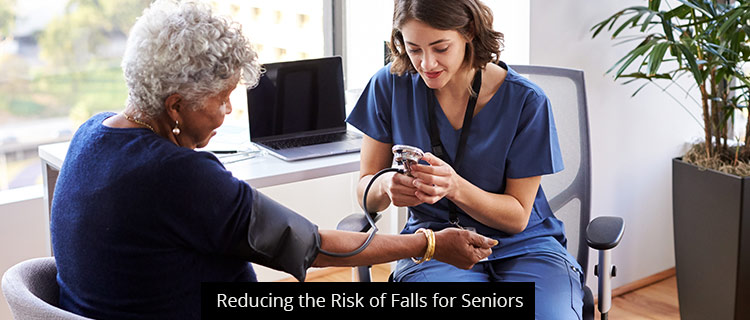With aging, it’s not unusual for balance and coordination to begin to decline. Everything from medications or poor eyesight to decreased strength or physical challenges can increase the risk of falling. Your loved one may have gone up the same stairs dozens of times, but today they tripped and fell.
Falls can be dangerous for seniors because it increases their risk for injury. Broken bones can take longer to heal, and bumps and bruises can lead to other complications. Taking steps to be proactive and reduce risk of falling can keep your loved one safer. September 22 is Falls Prevention Awareness Day and a wonderful time to brush up on safety tips you need to know.
- Clear any clutter that may have accumulated in their home, especially along frequently traveled areas. Make sure that everything has its place and is accessible to your senior so they’re more likely to put things away instead of leaving them lying around because they can’t bend or reach to put them back. Secure any rugs and tie back cords so they’re out of the way.
- Install hand rails along any stairways (indoors and outside), and add grab bars in the bathroom near the shower or bathtub. Ensure that they are securely fastened so if your loved one starts to stumble or needs support, it is durable. Having something to hold on to can improve their balance and allow them to take their time moving about.
- Improve lighting so that it’s easier to see furniture, rugs, stairs, and other obstacles. Get nightlights or motion sensor lights for if they get up at night. This way they don’t have to fumble for a light switch or lamp.
- Encourage your loved one to wear supportive shoes that have good traction. This can help with balance and keep them from tripping due to their heel flopping out or sliding because of poor traction.
- Get them involved in yoga or other exercises that promote strength, coordination, flexibility, and balance. Staying active, working their muscles, and improving posture can reduce risk of falls and allow them to better catch themselves and regain balance.
- Have their vision and hearing checked regularly, as issues in these areas can affect their balance and coordination. Hearing problems can throw off their equilibrium, and eye problems can affect everything from central and peripheral vision to focus, colors, and depth perception.
- Be alert to potential side effects from medication they may be taking that can increase risk of falls.
Pay attention to any challenges your loved one may face or changes in their mobility so that you can quickly and efficiently address potential fall risks. Do periodic sweeps of their home to stay on top of problems. Having an in-home caregiver can also keep your loved one safer. They’ll have someone there to supervise and assist with activities, help them to get in and out of bed or up from a chair, and work with them to ensure they’re practicing safe strategies.
If you or a loved one requires skilled nursing care but can safely transition into the Assisted Living Waiver program, please contact Guidant Care Management at 844-494-6303 to determine if you qualify. We’ll work with you to ensure seniors receive the care they need to maintain as much independence as possible.

